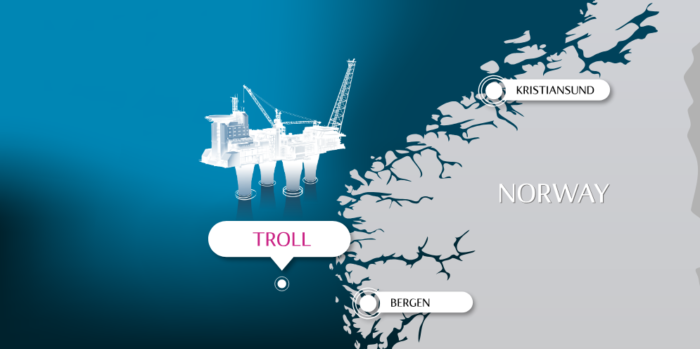Equinor has been awarded an exploitation permit for CO2-storage on the Norwegian Continental Shelf, according to Norway’s Ministry of Petroleum and Energy. The storage solution is part of the large-scale carbon capture and storage-project in Norway. If approved, the storage is set to begin operations in 2023 or 2024, Gassnova, a governmental agency in charge of developing the CCS project, reported.
Specifically, the allocated area for storage of CO₂ is located near the Troll oil and gas field and was announced in July 2018. The storage will receive CO2 from onshore facilities, as power or cement plants, to reduce emissions to the atmosphere.
Equinor will submit a development plan in 2019, whereas the parliament is to make its final decision in 2020-2021.
[smlsubform prepend=”GET THE SAFETY4SEA IN YOUR INBOX!” showname=false emailtxt=”” emailholder=”Enter your email address” showsubmit=true submittxt=”Submit” jsthanks=false thankyou=”Thank you for subscribing to our mailing list”]
Also, the government aspires to find a cost effective solution for full-scale carbon capture and storage in Norway, since it will result to international technology development.
Kjell-Børge Freiberg, Minister of Petroleum and Energy, supported that the company’s plan to mature a storage solution is a sample of a successful project.
Equinor, together with project partners Shell and Total, will now mature the storage concept towards a Plan for Development and Operations (PDO) scheduled for delivery in 2019. An investment decision for the Norwegian full-scale carbon capture and storage project is expected in 2020/2021.
Concluding, supporters of carbon capture and storage address that countries are in need of technology to help fulfil promises and plans that were made during the Paris climate change agreement in 2015.
On the other hand, environmentalists are opposed to the use of technology, stating that it will perpetuate the status quo when limitations to use energy are of a great importance to limit global warming, according to Reuters.




























































